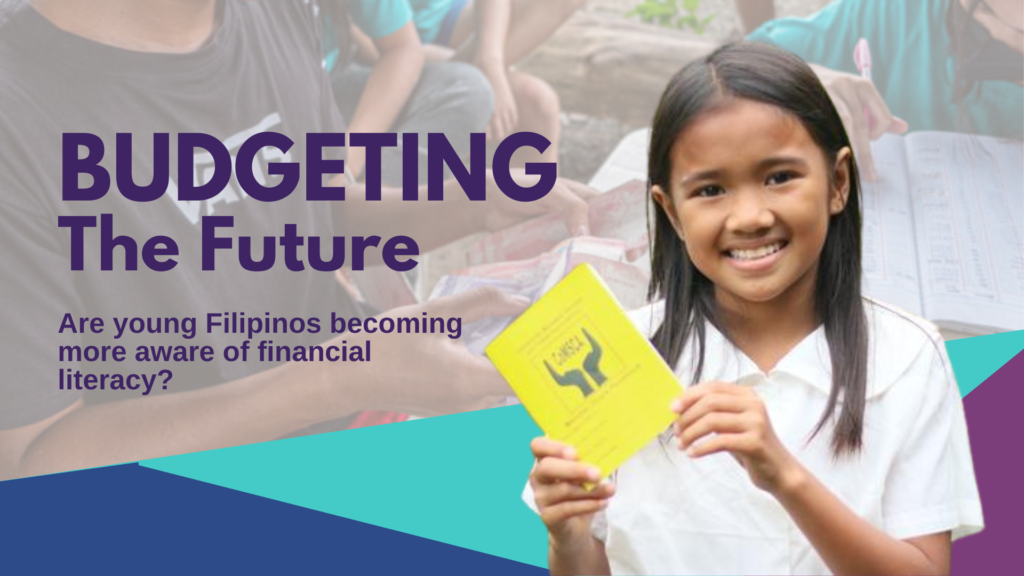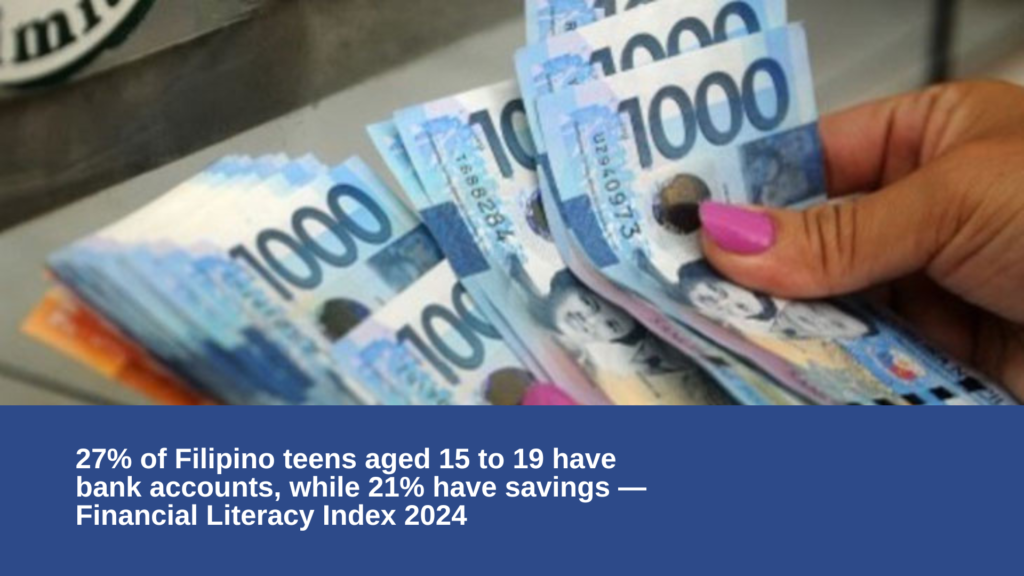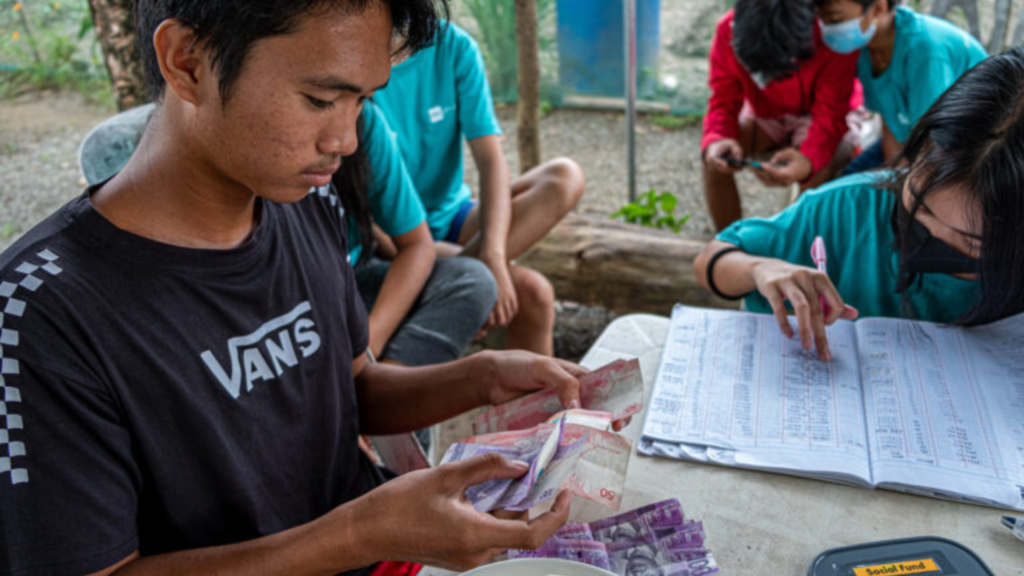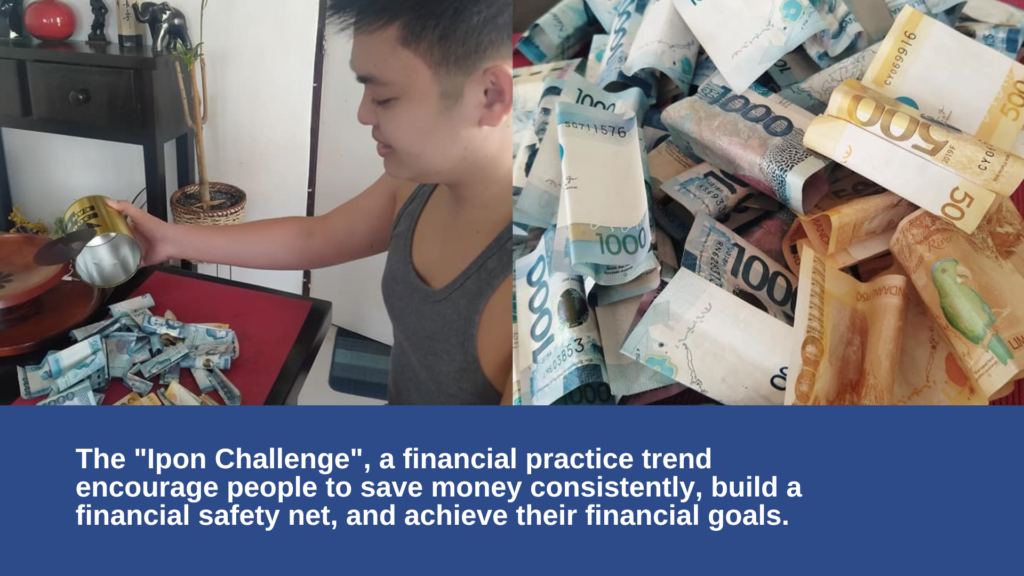Budgeting the Future: Financial Literacy Among Filipino Youth
Written by Jerchel Tayag, March 30, 2025
Do you identify with the “You only live once” mentality, where you spend every penny you have, or are you more of a “Kapag may isinuksok, may madudukot” type of person who prefers to save and not spend? Or perhaps you embody a balance of both mentalities?

As Filipinos, we sometimes call ourselves “Mukhang pera,” or greedy, when it comes to money. The term generally reflects certain cultural perceptions and behaviors regarding money. At the same time, Filipinos are “matipid,” or cautious with money. While these terms can carry negative connotations, does being viewed as “mukhang pera” come with a stigma, or can it be seen as a testament to resourcefulness and a desire for success?

Courtesy: OnePH, Bouquet Manila, Zander Polsotin
Recently, a captivating trend has taken over social media in the Philippines: money hunting, along with money cakes, money garlands, viral cash challenges, and the Ipon Challenge. In money hunting, influencers hide cash in neighborhoods and share clues, prompting their followers to decipher hints and race to find the hidden money. Additionally, the tradition of gift-giving money and creatively hiding cash in cakes and bouquets showcases the generosity and artistic flair of Filipinos, emphasizing thoughtfulness in their financial interactions. Our families even create prosperity bowls and throw coins during New Year’s Eve as part of our culture, believing that it attracts wealth and good fortune. While some may perceive this as stingy, it is essentially because of our desire for financial stability and a better life.
Historically, the Philippines has faced different economic challenges, causing Filipinos to cultivate a survival mentality when it comes to financial matters. Based on the Daily Tribune, still, in some sectors today, talking about money is taboo. Some people are uncomfortable talking about it as they don’t want to be branded as stingy or “mukhang pera” in Tagalog, but the youth we have today are showing a different path when it comes to money talk, as they want to break the cycle of struggling financially. They are more open to tackling issues about financial literacy.


Courtesy: Bilyonaryo and US Embassy in the PH
Financial literacy is the ability to understand and effectively use various financial skills, including personal financial management, budgeting, and investing, according to Jason (2024). Financial literacy empowers one to track their investing landscape, work towards financial independence, and prepare an individual for unexpected circumstances like loss of job and emergencies
In recent years, the landscape of financial literacy in the Philippines has transformed significantly, particularly among youths armed with knowledge and skills to manage their money effectively. Despite having only 27% of Filipino teens aged 15 to 19 having bank accounts, only 21% have savings. According to BSP Deputy Governor Bernadette Romulo-Puyat. The BSP also said in their 2024 financial literacy index (FLI) that among the age cohorts, the young adult group recorded the highest financial literacy scores for different demographic and economic factors and categories. The study examines the financial state of households, covering both financial and non-financial assets, including income, savings, debts, investments, properties, and expenditures.

Courtesy: Philippine News Agency
Today’s Filipino youth are experiencing a surge in financial literacy, demonstrating a sophisticated understanding of money management that combines ambition with caution. The shift may be caused by the digital age, where youths can lessen the knowledge gap in terms of money spending. Youth have access to online educational content, and also the influence of social media drives them to learn about important financial concepts like saving, budgeting, and investing. An example of this is the trend of money stuffing and Ipon Challenge online. A big factor can also be their life experience, facing financial difficulties such as struggles with debts, which makes them break the stigma of being financially unstable. While younger Filipinos face the stereotype of being stingy, that is often caused by their careful approach to spending their money, this intricate balance reflects the desire and deep commitment to securing their futures and supporting their families.
How about you? With all these insights on financial literacy, are you ready to take control of your financial future? What do you think?
What do YOUTH think? What do YOU think?
References:
De Guia, J. (2023, October 11). The youth tackling financial literacy in the Philippines. Medium. https://medium.com/@joaquin.deguia/the-youth-tackling-financial-literacy-in-the-philippines-b9632eea70e4
TDT, & TDT. (2022, October 13). How good are Filipinos about money? Daily Tribune. https://tribune.net.ph/2022/10/13/how-good-are-filipinos-about-money?fbclid=IwY2xjawJTsj5leHRuA2FlbQIxMAABHVwJy5-eD16cGiGCL7NLnsJMlqGaieG_IZjszf9D1uJKh4SnKUsp8OqekA_aem_PHlEC0F0743u81amNB-7Jw
TDT, & TDT. (2022b, October 13). How good are Filipinos about money? Daily Tribune. https://tribune.net.ph/2022/10/13/how-good-are-filipinos-about-money
BSP study about Youth Financial Literacy. https://www.esquiremag.ph/money/youth-financial-literacy-BSP-2024-a794320240705?s=51p9h1pfbh9e0fpco6mppf7ili